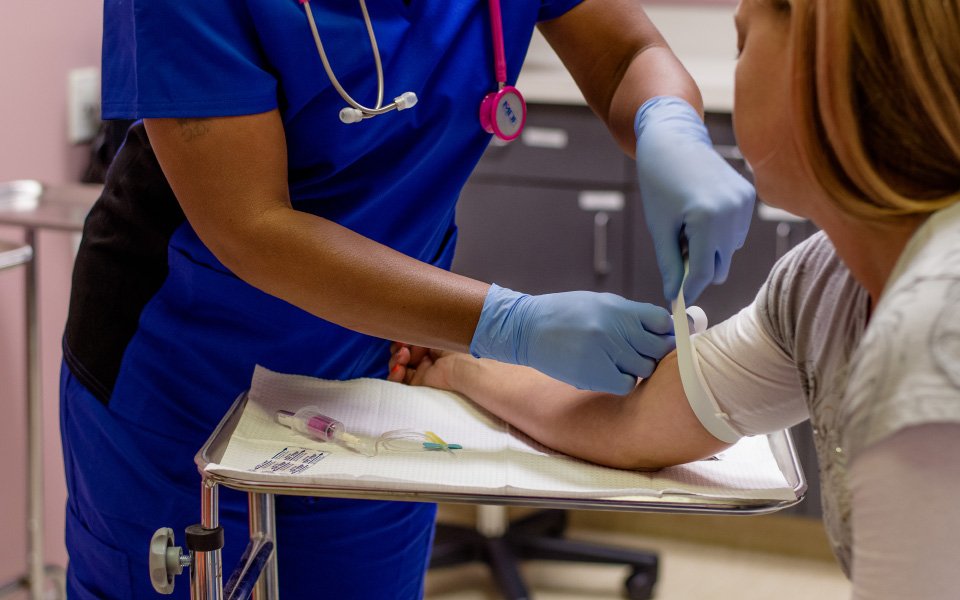Top-Rated Northeast Medical Institute Phlebotomy Training Stamford: Hands-On Understanding Experience
Top-Rated Northeast Medical Institute Phlebotomy Training Stamford: Hands-On Understanding Experience
Blog Article
Crucial Elements to Take Into Consideration When Picking the Many Appropriate Medical Institution Curriculum for You
Selecting the most fitting clinical school educational program is a crucial choice that can considerably influence your academic trip and future occupation course. As striving medical professionals, the choice of curriculum ought to line up with your personal knowing design and career aspirations.
Personal Learning Design

Clinical colleges that offer varied mentor techniques and sources can fit various discovering styles, cultivating a comprehensive and dynamic educational setting. Eventually, recognizing individual learning choices empowers trainees to make enlightened decisions concerning their clinical education, establishing a solid foundation for their future professions in health care.
Career Purposes Positioning

Furthermore, lining up job purposes with the clinical school curriculum can likewise improve motivation and engagement throughout the educational journey. They are much more most likely to remain dedicated and concentrated to their researches when trainees see the direct relevance of their coursework to their future job. As a result, when selecting a medical institution educational program, it is important to carefully take into consideration exactly how well it straightens with one's profession purposes to make sure a successful and satisfying specialist path.
Training Methods
Considering the placement of occupation objectives with the selected clinical institution curriculum, an assessment of the teaching methods employed comes to be crucial in shaping the finding out experience. The performance of a medical school curriculum greatly depends on the mentor methodologies made use of by the organization. Different teaching approaches, such as talks, little team discussions, problem-based understanding, simulation-based training, and hands-on clinical experience, can substantially impact how well trainees comprehend and maintain information.
Lectures are a standard but still typically made use of approach for providing content to a huge team of pupils successfully. Small team conversations foster partnership, critical thinking, and interaction skills among pupils. Problem-based learning encourages energetic participation, self-directed learning, and analytical capabilities. Simulation-based training allows pupils to practice medical abilities in a regulated environment before communicating with real patients. Hands-on clinical experience provides a firsthand understanding of client treatment and clinical techniques.
When choosing a medical school curriculum, aspiring students ought to take into consideration the mentor methodologies employed to make certain that their knowing preferences and toughness align with the academic method of the institution.
Educational Program Adaptability
When assessing clinical college programs, examining the level of curriculum adaptability is crucial for prospective trainees looking for a customized educational experience. Educational program flexibility describes the level to which pupils can customize their understanding paths within the medical college curriculum. An educational program that uses adaptability allows students to seek their passions, concentrate on locations where they need much more assistance, and take part in discovering experiences that straighten with their profession objectives.

Possible clinical pupils need to think about exactly how a clinical institution's curriculum adaptability straightens with their understanding choices, occupation goals, and individual goals. By picking a program that offers the right equilibrium of framework and adaptability, trainees can maximize their academic experience and prepare themselves for successful careers in medicine.
Professional Exposure Opportunities
Checking out the sensible application of medical knowledge, scientific direct exposure chances play an essential role fit a thorough clinical education and learning. These possibilities give students with indispensable hands-on experience in genuine medical care settings, permitting them to link the space between theory and technique. When taking into consideration medical institution curricula, the high quality and amount of professional exposure have to be very carefully examined.
Efficient professional direct exposure ought to offer a varied array of experiences throughout various specialties, ensuring that students are subjected to different clinical situations and person demographics. Direct exposure to outpatient facilities, inpatient wards, medical movie theaters, and emergency situation divisions can aid trainees create a well-shaped understanding of different elements of healthcare delivery. Additionally, chances for community-based care and communications with underserved populations can foster a much deeper gratitude for the social components of health.
Furthermore, the existence of supportive faculty and advisors during these scientific experiences can significantly boost the discovering procedure. Faculty advice and constructive comments can aid students assess their professional encounters, identify areas for enhancement, and enhance browse around this site their decision-making capabilities and scientific abilities (Northeast Medical Institute CNA Classes Near me Stamford). Generally, durable scientific direct exposure chances are crucial for preparing future medical professionals to deliver quality person care properly
Verdict
Finally, when picking a medical school curriculum, it is essential to consider your individual discovering design, alignment with job objectives, these details showing techniques, curriculum flexibility, and professional exposure chances. These variables play a critical duty in determining the most suitable program for your educational and specialist growth. Ensure to completely evaluate each aspect to make a notified choice that will best use this link sustain your development in the medical field.
Recognizing one's individual discovering style is vital when selecting a medical school educational program. By recognizing one's learning style early on, striving clinical students can strategically select a curriculum that caters to their strengths, eventually improving their discovering experience and academic success.
When assessing medical institution programs, analyzing the extent of educational program versatility is crucial for potential pupils looking for a customized instructional experience. Educational program versatility refers to the degree to which students can individualize their discovering courses within the clinical school curriculum.In final thought, when selecting a clinical college educational program, it is essential to consider your personal knowing style, positioning with career purposes, educating techniques, educational program versatility, and scientific direct exposure chances.
Report this page